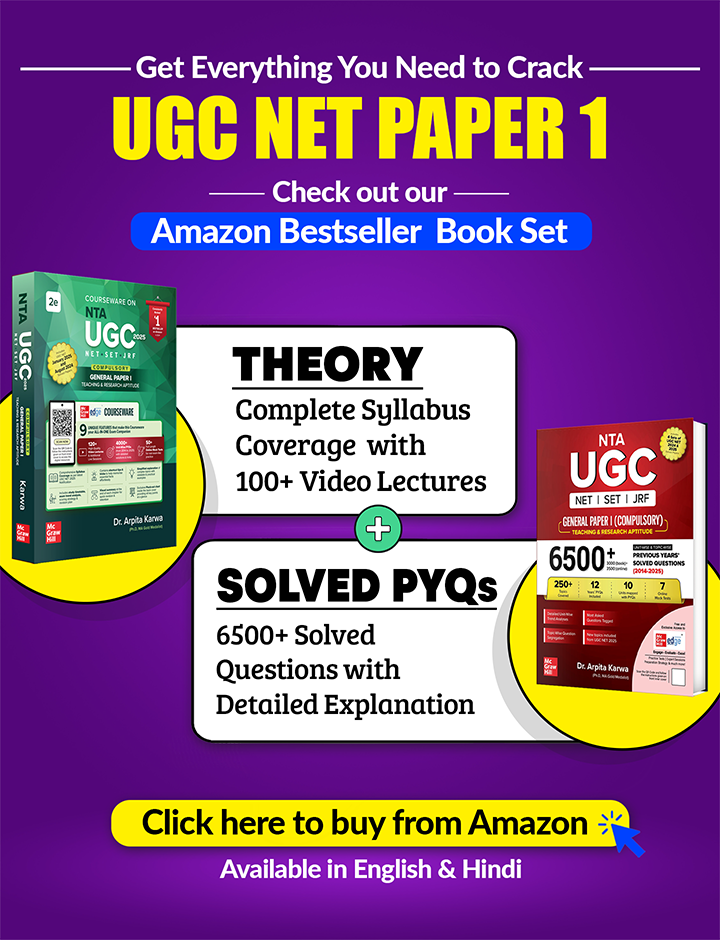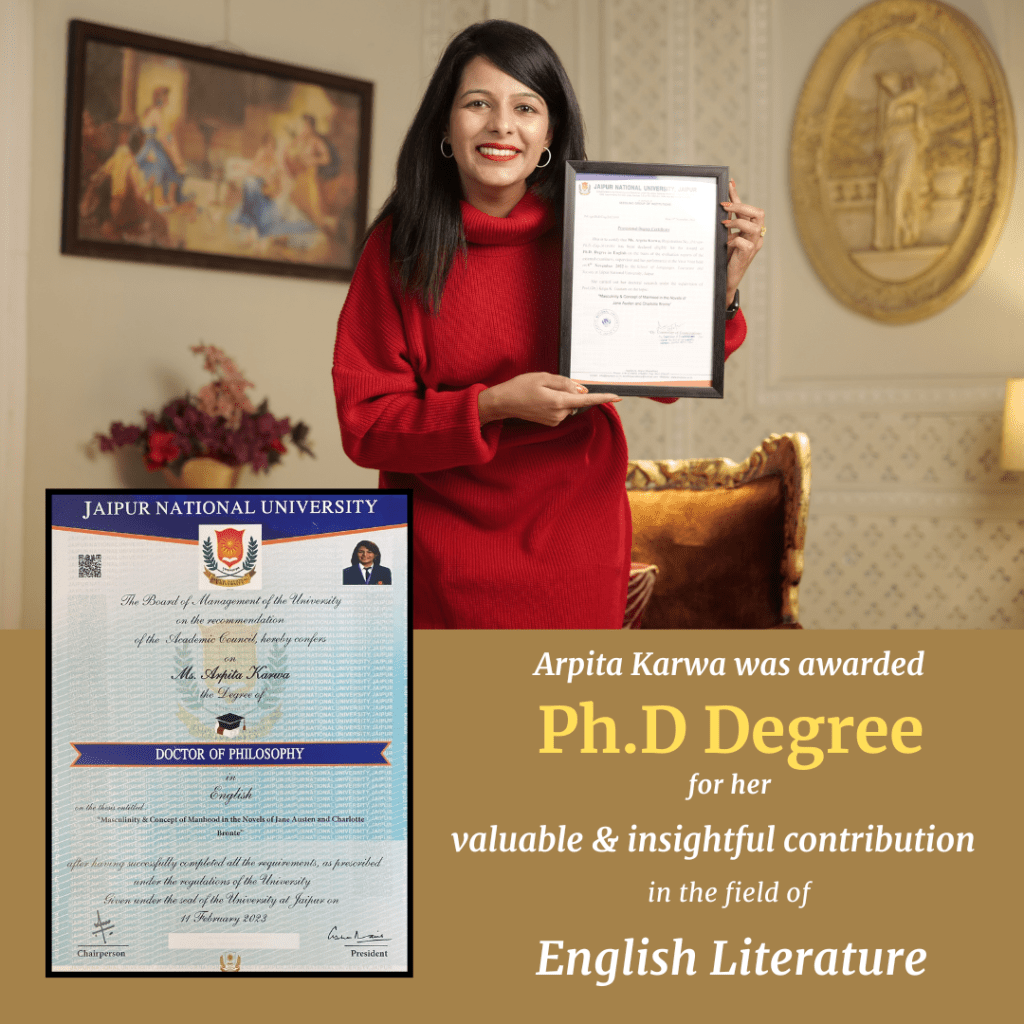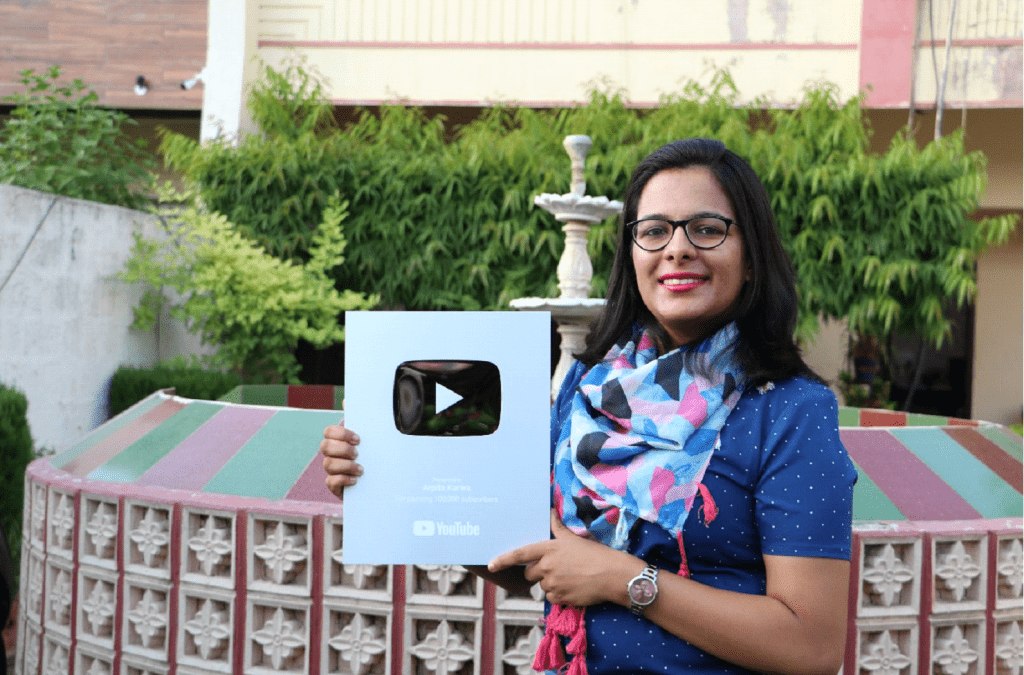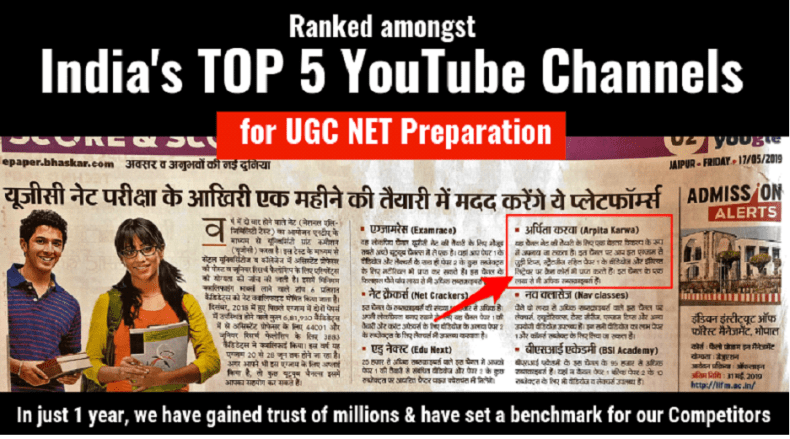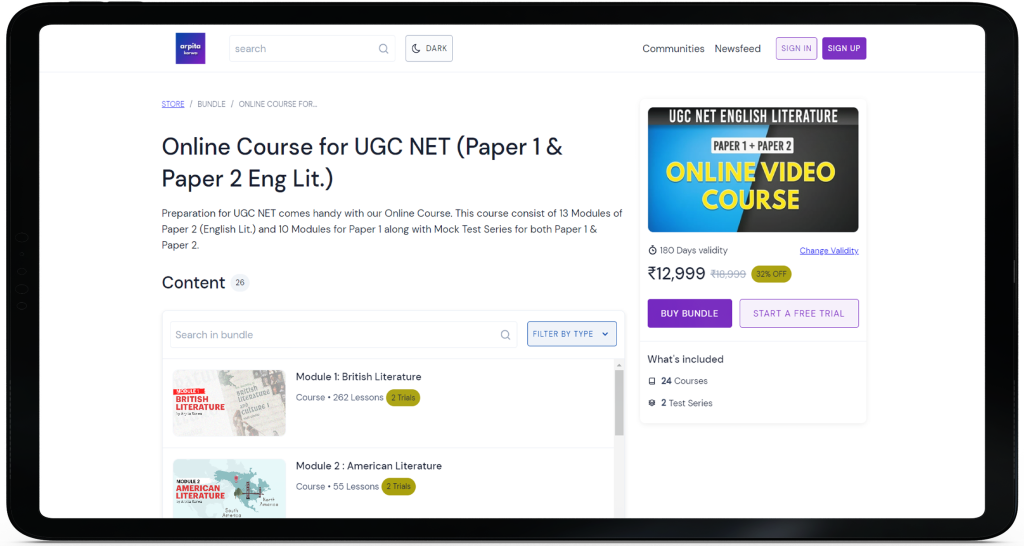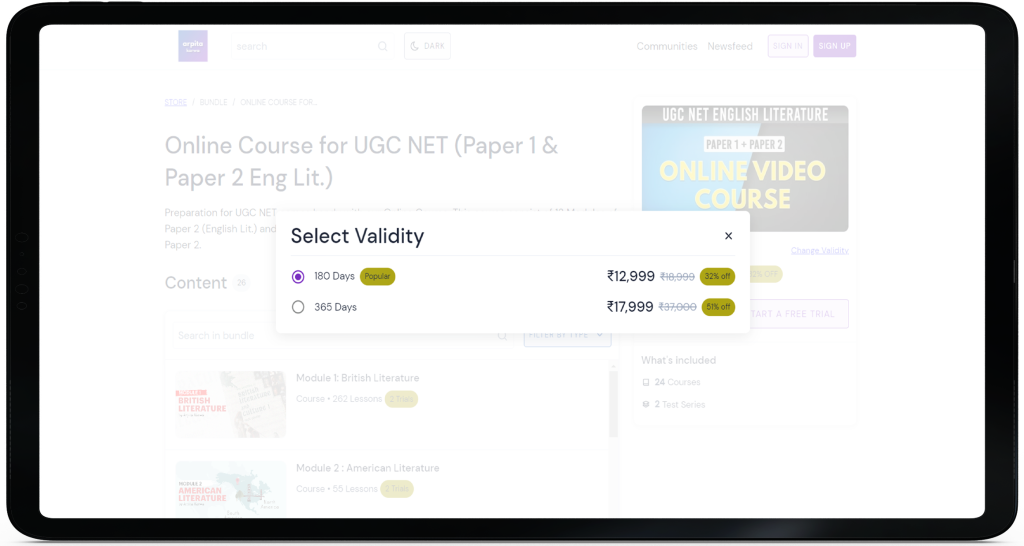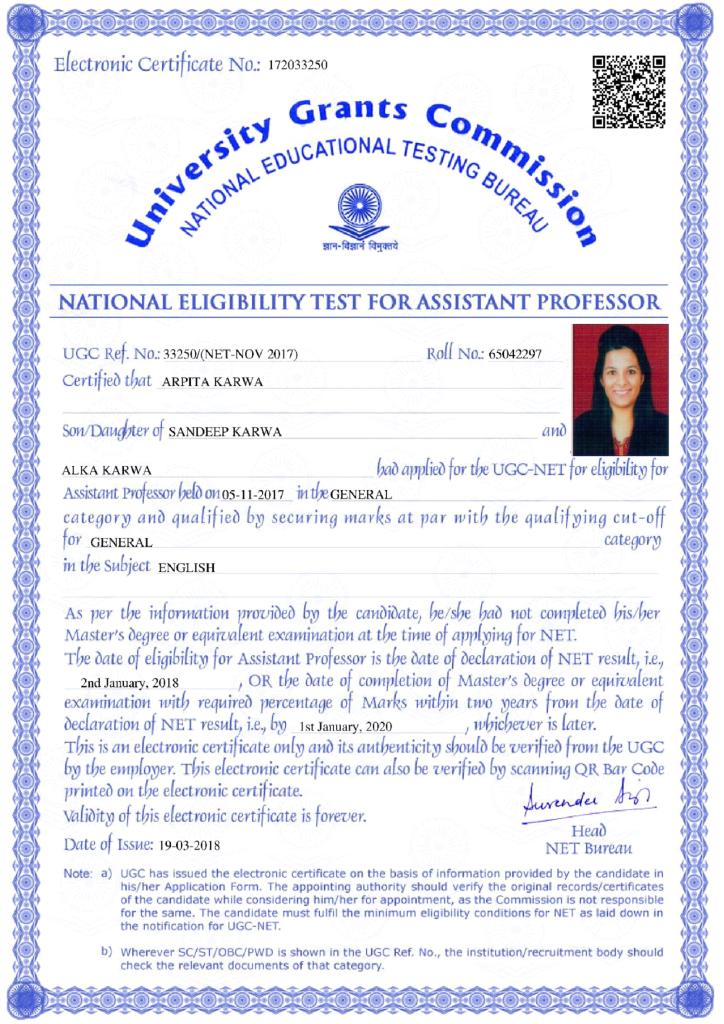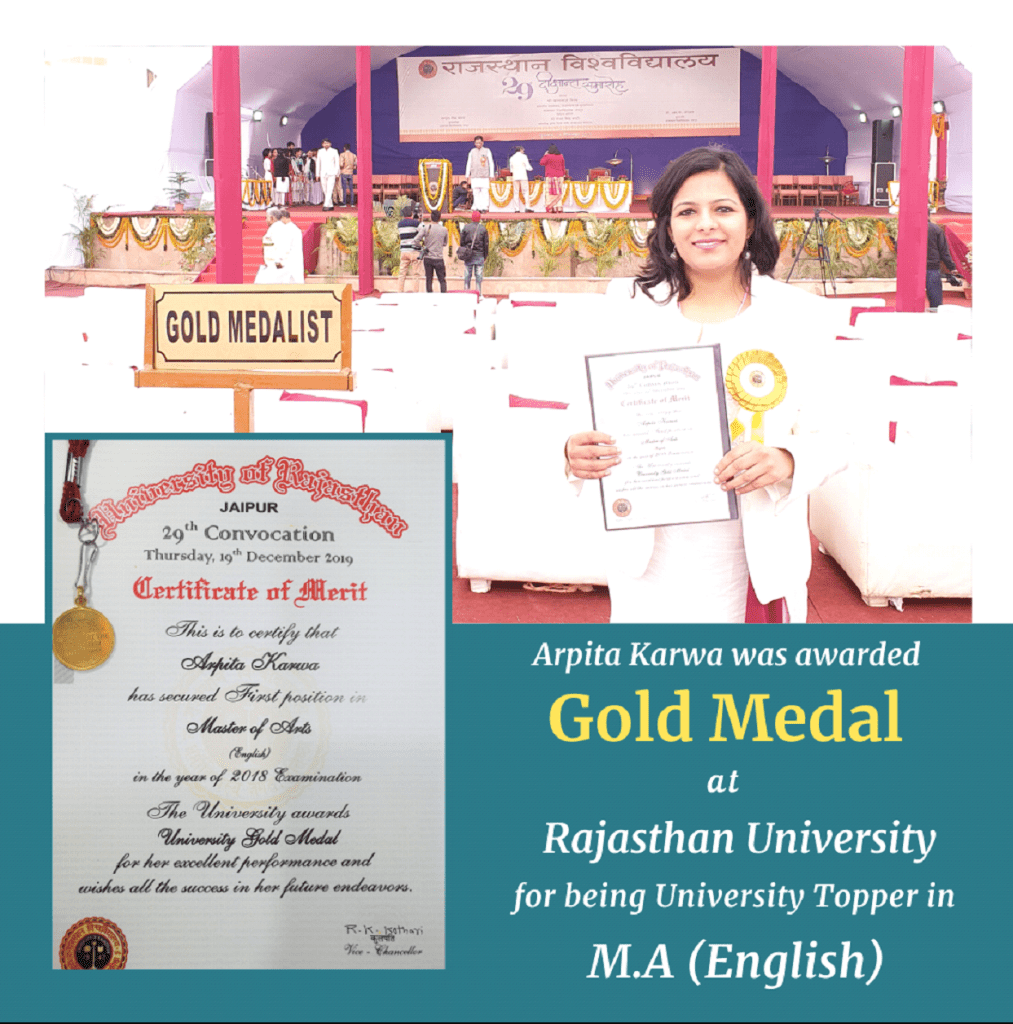Maharashtra Set 1
June 20, 2023 2023-12-18 16:10Maharashtra Set 1
Maharashtra Set 1
Q.1) A caesura is a:
(A) Pause in a stanza
(B) Pause at the end of a line of verse
(C) Pause in a line of verse
(D) Pause in the beginning of a line of verse
Q.2) Which of the following statements about ‘Sons and Lovers’ is false?
(A) Paul Morel rejects Mirian because his mother sees her as a rival
(B) Paul Morel’s affair with Clara is symbolic of the consummation of his love for his mother
(C) Paul Morel is unable to have a satisfactory sexual life with Clara
(D) Mrs Morel, who is from the middle class, looks down upon her working class Husband
Q.3) ‘A Passage to India’ is a novel with the Indian setting written by:
(A) Rudyard Kipling
(B) Kiran Nagarkar
(C) Raja Rao
(D) E M Forster
Q.4) In which year, W B Yeats published his first anthology of poems?
(A) 1889
(B) 1899
(C) 1909
(D) 1919
Q.5) Identify the play that is not set in Ireland:
(A) John Bull’s Other Island
(B) The Playboy of the Western World
(C) A Woman of No Importance
(D) Juno and the Paycock
Q.6) In the Faerie Queene the twelve knights were designed to represent twelve;
(A) Virtues
(B) Vices
(C) Crimes
(D) Follies
Q.7) Which one is a sequel to Look Back in Anger?
(A) Under Plain Cover
(B) The Entertainer
(C) Dejavu
(D) A Better Class of Person
Q.8) The anthology Selected Poems of Sylvia Plath has been edited by;
(A) Dylan Thomas
(B) Ted Hughes
(C) Philip Larkin
(D) John Betjeman
Q.9) The Sonnet was introduced in England by:
(A) Surrey
(B) Shakespeare
(C) Sidney
(D) Wyatt
Q.10) In which tale, the wife condemns celibacy by describing her life with five late husbands?
(A) The Cook’s Tale
(B) The Reeve’s Tale
(C) The Wife of Bath’s Tale
(D) The Franklin’s Tale
Q.11) Which of the following is not a drama by Beckett?
(A) Murphy
(B) Happy Days
(C) End Game
(D) Act Without Words
Q.12) When Everyman is summoned by Death, who agrees to accompany him?
(A) Fellowship
(B) Good deeds
(C) Strength
(D) Beauty
Q.13) Portia is a character in:
(A) Antony and Cleopatra
(B) Julius Caesar
(C) Coriolanus
(D) Timon of Athens
Q.14) Who wrote The Epithalamion
(A) Edmund Spenser
(B) Sir Philip Sidney
(C) John Lyly
(D) Samuel Daniel
Q.15) Which of the following plays has a female protagonist?
(A) Inadmissible Evidence
(B) The Workhouse Donkey
(C) A Man for All Seasons
(D) A “Taste of Honey
Q.16) Who wrote The Revenger’s Tragedy?
(A) Cyril Tourneur
(B)Thomas Middleton
(C) George Chapman
(D) John Marston
Q.17) Who among the following is nor a metaphysical poet?
(A) George Herbert
(B) Henry Vaughan
(C) Richard Lovelace
(D) Thomas Carew
Q.18) Leviathan is authored by:
(A) John Milton
(B) John Dryden
(C) Thomas Hobbes
(D) Thomas Browne
Q.19) Winston Smith is a character in:
(A) Burmese Days
(B) 1984
(C) The Heart of the Matter
(D) Comedians
Q.20) Which of the following plays makes use of Greek mythology?
(A) Desire under the Elms
(B) Emperor Jones
(C) Beyond the Horizon
(D) A Touch of the Poet
Q.21) Ernest Hemingway´s For Whom the Bell Tolls deals with:
(A) World Warl
(B) The Spanish Civil war
(C) World War 1I
(D) The Irish Civil war
Q.22) Ngugi Wa Thiongo is a novelist
(A) Kenvan
(B) Nigerian
(C) South A frican
(D) Rhodesian
Q.23) Identify the Realistic /Naturalistic play:
(A) A Streetcar Named Desire
(B) The American Dream
(C) Long Day’s Journey into Night
(D) A View From the Bridge
Q.24) Who is the hero of The Princes?
(A) Hira Raje
(B) Hiroji
(C) Hira Singh
(D) Hirala
Q.25) “My mother only said/Thank god, the scorpion picked on me/And spared my children” These lines are from:
(A) Sight of the Scorpion
(B) Night of the Scorpion
(C) Bite of the Scorpion
(D) God of the Scorpions
Q.26) Identify the comedy of Ben Jonson that verges on tragedy: Bartholomew Fair
(A) The Alchemist
(B) Bartholomew Fair
(C) Volpone, or the Fox
(D) Every Man Out of His Humour
Q.27) Identify the false statement about Congreve’s The Wav of the World:
(A) Millamant unlike other women characters in Restoration comedy, is not a promiscuous woman
(B) Millamant is a new heroine because she is dee ply in love with her admirer
(C) Mirabell wants to continue his affair with Mrs Fainall
(D) Mirabell does not love Mrs Marwood
Q.28) Ignoring literature’s referential function; the way it reflects the world we live in and giving autonomous Status to literature is the practice of:
(A) Marxist Criticism
(B) Phenomenological Criticism
(C) Formalistic Criticism
(D) New Historicism
Q.29) Which of the following is not influenced by Freud’s Psychology?
(A) The psychoanalytic criticism
(B) Surrealism
(C) New Criticism
(D) Stream-of-consciousness school
Q.30) Gulliver’s Travels is:
(A) A glamorous children’s adventure story and a pungent critique of humanity
(B) A satirical novel about foreign countries
(C) A novel about colonialism
(D) An autobiographical novel
Q.31) “True wit is Nature to advantage dressed/What oft was thought but ne’er so well expressed” Identify the poet of these lines:
(A) William Shakespeare
(B) John Dryden
(C) Alexander Pope
(D) Samuel Johnson
Q.32) Alexander Pope’s Essay on Criticism discusses the merits and limitations of;
(A) The 18* century school of poetry
(B) The 18″ century school of criticism
(C) The 18-century school of drama
(D) The 18″ century of prose
Q.33) Whose name is associated with The Spectator?
(A) Joseph Addison
(B) Charles Lamb
(C) Ben Jonson
(D) Samuel Johnson
Q.34) In his renowned Elegy Written in a Country Churchyard Thomas Gray pays tribute to:
(A) The soldiers of England
(B) The gentry of England
(C)The common villagers of England
(D) The famous writers of England
Q.35) Goldsmith’s play The Good Natured Man is:
(A) A comedy of humours
(B) A comedy of manners
(C) A sentimental comedy
(D) An anti-sentimental comedy
Q.36) From among the following characters of Jane Austen, identify the one who stands out as a being different from others:
(A) Frank Churchill
(B) Wickham
(C) Willoughby
(D) Edmund Bertram
Q.37) Who wrote the following lines?
“To see a world in a Grain of Sand
And a Heaven in a Wild Flower
Hold Infinity in the palm of your hand
And Eternity in an hour’
(A)William Wordsworth
(B) William Blake
(C) Samuel Taylor Coleridge
(D) Percy Bysshe Shelley
Q.38) Identify the novel which has multiple narrators:
(A) Wuthering Heights
(B) Jane Eyre
(C) Vanity Fair
(D) David Copperfield
Q.39) The literary term ‘negative capability’ is associated with:
(A) Wordsworth
(B) Byron
(C) Shelley
(D) Keats
Q.40) Identify the critical work which is in the form of dialogues:
(A) Dryden’s An Essay of Dramatic Poesie
(B) Dr Johnson’s Lives of the English Poets
(C) Coleridge’s Biographia Literaria
(D) Pope’s Essay on Criticism
Q.41) A rubai is a stanza of
(A) Two lines
(B) Three lines
(C) Four lines
(D) Five lines
Q.42) ·The Sick Rose’ is a poem by:
(A) Wordsworth
(B) Blake
(C) Coleridge
(D) Keats
Q.43) Who was like a divine model of Browning in his early years?
(A) Tennyson
(B) Wordsworth
(C) Shelley
(D) Blake
Q.44) Which of the following is not a characteristic of Fitzgerald´s poetry?
(A) Essentially pessimism
(B) Intellectualism
(C) Pathetic note
(D) Romanticism
Q.45) Robert Browning can be described best as:
(A) A dramatic singer of love and life
(B) An authentic voice for drama and life
(C) A lover of drama and life
(D) A singer of dramatic love and life
Q.46) Identify the poet who wrote the lines -“The sea of Faith Was once, too at the full, and round earth’s shore /Lay like the folds of a bright girdle furl’d”
(A) Arthur Hugh Clough
(B) Elizabeth Browning
(C) Mathew Amold
(D) Tennyson
Q.47) There is an indictment of orphanages and of the London slums in Dickens’:
(A)A Tale of Two Cities
(B) Our Mutual Friend
(C) Little Dorrit
(D) Oliver Twist
Q.48) Multiple interconnected plots are found in George Eliot’s novel:
(A) Silas Marner
(B) Middlemarch
(C) The Radical
(D) The Mill of the Floss
Q.49) Identify the author who does not belong to the stream of consciousness tradition:
(A) E M Forster
(B) Virginia Woolf
(C) James Joyce
(D) Marcel Proust
Q.50) Which of the following plays is entirely in prose?
(A) A Family Reunion
(B) A Phoenix Too Frequent
(C) Justice
(D) The Only Jealousy of Emer







